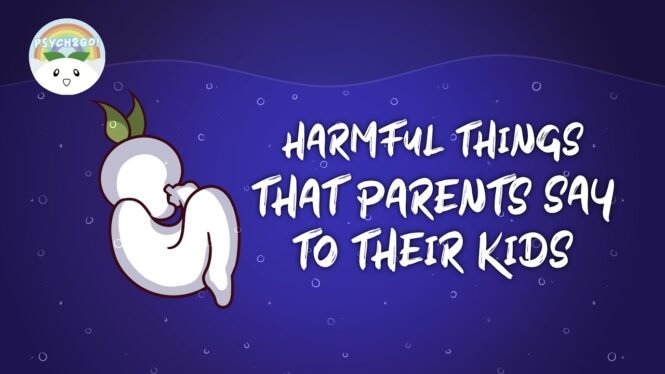As parents, we all want the best for our children. However, sometimes we say things that we don’t realize can be harmful to them. In this blog post, we will discuss eight common phrases that parents say to their kids that can have negative impacts on their self-esteem, mental health, and overall development. By becoming aware of these harmful statements, we can actively work towards creating a more positive and supportive environment for our children to grow and thrive in.
Introduction
The relationship between parents and their children is one of the most significant and complex bonds in life. Parents play a vital role in shaping their children’s personality, self-esteem, and behavior. Parents’ words have a profound impact on their children, and the way they talk to them can either build them up or tear them down. Unfortunately, parents can sometimes say things that can harm their kids without even realizing it.
In this article, we will explore 8 harmful things that parents commonly say to their kids. We will discuss how these words can affect children’s mental and emotional well-being and provide some guidance on how parents can communicate in a way that builds their children up rather than tearing them down.
1. “You’re so lazy”
Calling a child lazy can be harmful to their self-esteem and motivation. It can lead them to believe that they are incapable of doing anything right and can lead to a pattern of learned helplessness. Rather than calling them lazy, try to motivate them by showing them how to take small steps to achieve their goals. Encourage them to try new things and praise them for their efforts, no matter how small they may be.
2. “Why can’t you be more like your brother/sister?”
Comparing children to their siblings can cause resentment and jealousy. It can also set unrealistic expectations that can lead to a fear of failure. Instead, focus on each child’s strengths and encourage them to celebrate their differences.
3. “You’re not good enough”
Telling a child that they are not good enough can be damaging to their self-esteem and self-worth. It can lead to depression, anxiety, and a fear of failure. Encourage your child to do their best and praise them for their efforts, no matter the outcome.
4. “I don’t have time for this”
Children need attention and quality time with their parents. Saying that you don’t have time for them can make them feel unimportant and neglected. Make an effort to spend time with your child and show them that they matter to you.
5. “You’re too sensitive”
Invalidating a child’s feelings can cause them to suppress their emotions and make them feel that their feelings are not important. Instead, acknowledge their feelings and help them understand and express them in a healthy way.
6. “Why can’t you be more like (someone else)?”
Comparing a child to someone else can be harmful to their self-esteem and cause feelings of inadequacy. Instead of comparing them to others, encourage them to focus on their strengths and individuality.
7. “I wish you were never born”
Saying this to a child can be extremely damaging and traumatic. It can cause them to feel unloved and unwanted. Rather than lashing out in anger, take a deep breath and find a healthy way to express your emotions.
8. “You’re so stupid”
Calling a child stupid can lead to a pattern of low self-esteem, self-doubt, and depression. Encourage your child to ask questions, explore new things and make mistakes. Help them understand that everyone makes mistakes and that it’s a natural part of learning and growing.
Conclusion
Parents’ words have a significant impact on their children’s mental and emotional well-being. Children are vulnerable and need their parents’ love and support to thrive. As parents, it’s crucial to communicate in a way that builds our children up rather than tearing them down. Remember to focus on their strengths, celebrate their differences, and encourage them to be the best versions of themselves.
FAQs
- What should I do if I accidentally say something harmful to my child?
Take a deep breath and apologize to your child. Be honest with them about your mistake and make an effort to communicate in a healthier way in the future.
- What are some positive phrases that I can use to encourage my child?
“I believe in you,” “you are capable,” “I love you no matter what,” “I am proud of you.”
- How can I help my child develop a positive self-esteem?
Encourage them to try new things, praise them for their efforts, focus on their strengths, and teach them to understand and express their emotions in a healthy way.
- Can I repair the damage caused by hurtful words?
Yes, you can. It’s never too late to apologize and make an effort to communicate in a healthier way in the future. You can also seek professional assistance to help you and your child heal and move forward from the trauma.
- How important is it to listen to my child?
Listening to your child is crucial. It shows them that you care about their feelings and opinions and that they matter to you. It also helps them feel heard and validated.
Christopher Conway, the innovative mind behind “Love Blueprints,” is a seasoned relationship expert and author. His insightful guidance, drawn from years of experience and study, offers transformative strategies for modern love and dating. Christopher’s commitment to enhancing romantic connections has made “Love Blueprints” a go-to resource for those navigating the complexities of relationships.




